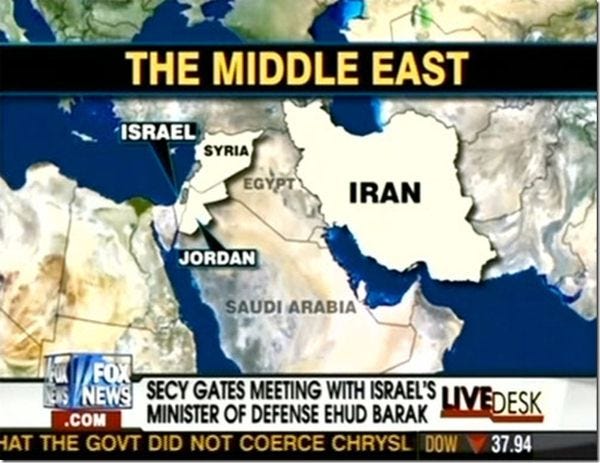White House Will Happily Pretend Yesterday's Syria Breakthrough Was Their Plan All Along
We watched Storage Wars last night instead of the President's address on Syria, but we read the transcript and we give it a B. Hit the right marks, soaring rhetoric kinda phoned-in. So now let's commence the giving of mad Syria props because the new narrative is that they solved it with a year of brilliant diplomacy and derring-do. Cool narrative, right?
If it's your bag, here is what you'll have to believe in order to construct a reality in which Obama and his team did a great job on Syria, and that's why Assad says he'll give up his chemical weapons:
Russia was just waiting until Assad had gassed a few hundred more civilians before they were prepared to... do something that's arguably in their interest, like protecting their ally and securing chemical weapons from terrorists. Really, we were just tapping our feet while Russia came around; they were unpersuadable until Monday for as-yet unknown reasons, and/or:
For similarly unknown reasons, Assad would not have been willing to make this agreement back in June, when an an alleged chemical attack by the regime prompted Obama to authorize arming the rebels, which we were all thrilled about, and:
Somebody thought it would achieve something to send John Kerry out on Monday to float and then dismiss the possibility that what would happen a day later could ever happen, and then have the State Department reiterate that Syria "cannot be trusted" to do what the President is apparently now hoping they will do. Nobody here made a mistake.
All of this depends on some unknown factor that explains why Russia or Syria wouldn't have made this concession in June. Or August. Russia just wasn't there yet , maybe? So Obama knew not to threaten to strike after the first chemical attack, because he'd have to actually do it? Maybe? It's possible, we guess? Because Russia and the U.S. always tell each other what they're really thinking and feeling at all times? To insure that just the right number of Syrians are gassed, and nobody else's hair gets mussed? Is that how it works?
Really though, props for apparently, maybe, talking about a diplomatic solution with Russia like a year ago -- planting that seed! And that threat of military intervention that everybody lost their whole shit over was actually a pretty sweet move, it turns out. Maybe if the threat was made it back in June, we would not have "Warning: Graphic Images" on major news stories from Syria.
We still love us some Obama, and no, he is not actually terrible at foreign policy. That is a gross exaggeration for comic effect! But until someone clearly explains why a credible threat to strike in June, after Syria's first chemical attack crossed the "red line," wouldn't have produced this result, we won't be pretending that Obama handled this Syria nuisance like a psychic, nuclear-dicked Jedi. Sometimes, diplomacy isn't an intricate dance. It can also be a clusterfuck. Or even a happy accident. Or a little of each. And if we can get out of this without unleashing a death rain of cruise missiles, we'll be very happy about that.
(As you may have noticed, Wonkette is violating its editorial policy of ?????? on Syria because yesterday's hint of a diplomatic solution was, finally, some really nice news, so of course we had to go and spoil it!)
[ WaPo / HuffPo / Annenberg / Slate / NY Daily News ]



You raise some good points. Certainly, there has been back-channel negotiation going on about Syria, probably ever since the civil war started. And I think your theory, that it was only after the larger chemical attack that there was sufficient evidence to convince everyone necessary that it was the government and not the rebels at fault, is a plausible explanation for the timing.
You appear to contradict yourself by saying "Obama blew it in thinking he could bully Assad with the threat of force...", as well as "This was nothing but a textbook case of good cop/bad cop which required Obama to beat the war drums incessantly to play our role...". You may be thinking of different time frames, but the different time frames were only weeks apart.
This suggests to me that the serious negotiations happened during the past few weeks, and that this wasn&#039;t some master-plan spanning many months. I&#039;ve commented before that I think the President was a little bit lucky -- by this I don&#039;t mean &quot;blind luck&quot;, but rather some of the circumstances. Most notably, the fact that Putin has at least as high an interest in containing and securing any viable chemical weapons as we do. Also, that Russia doesn&#039;t benefit from turmoil in their own client states. They want Assad to prevail, of course, but he was already doing that with conventional weapons. This &quot;concession&quot; may actually end up making him look less evil than he is. It will be interesting to see if there is a <i>quid pro quo</i> regarding conventional support of the rebel factions.
Shorter version: I agree that this is an example of (secret) diplomacy, and not blind luck, but I think it was a good bit more short-term and <i>ad hoc</i> than you appear to. (Also, I just have trouble believing that the Kerry statement was staged, simply because it was too damned cinematic for my taste. But then, I rarely watch movies or teevee, so maybe this is how we do, these days).
Excellent point. But are we sure Reagan didn&#039;t have something to do with this negotiation?